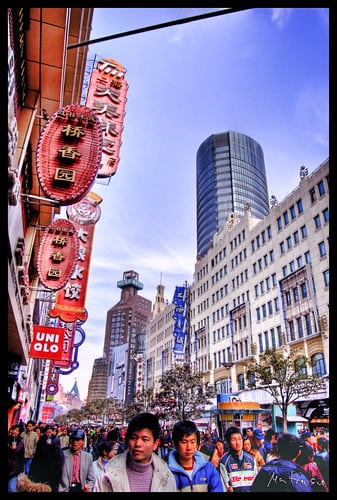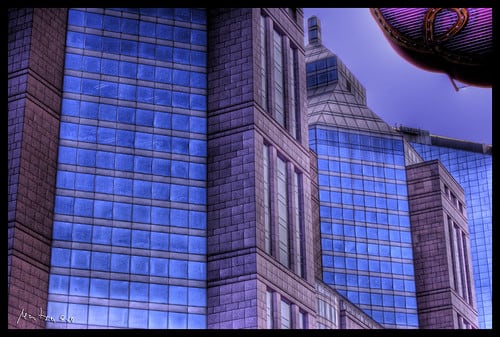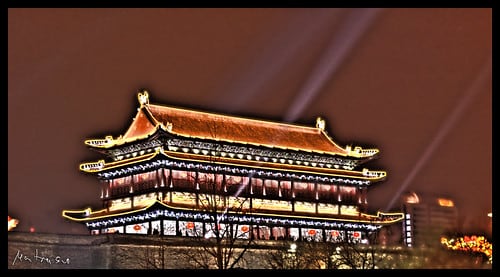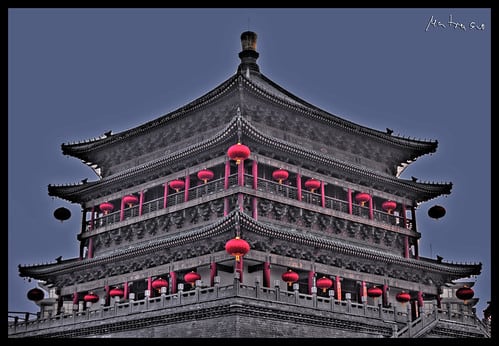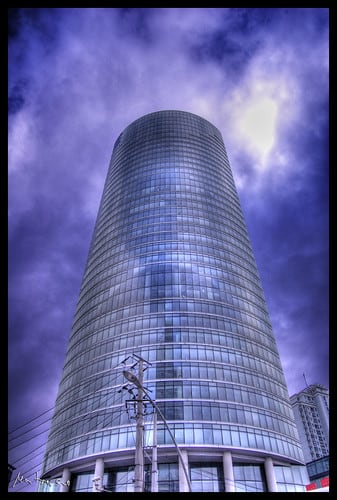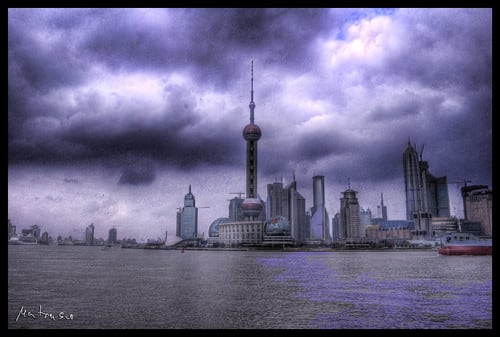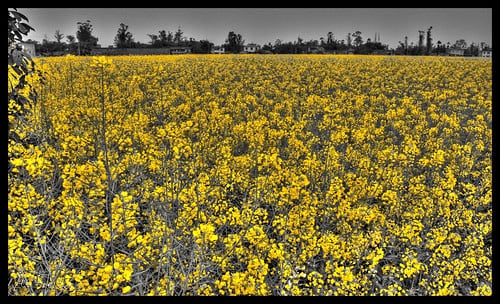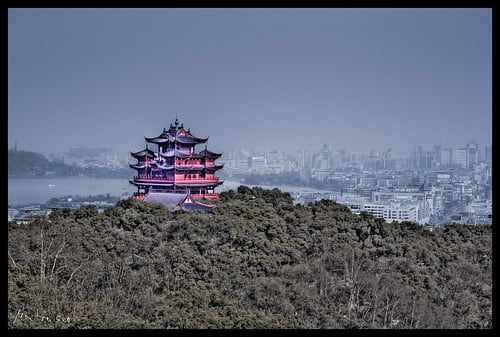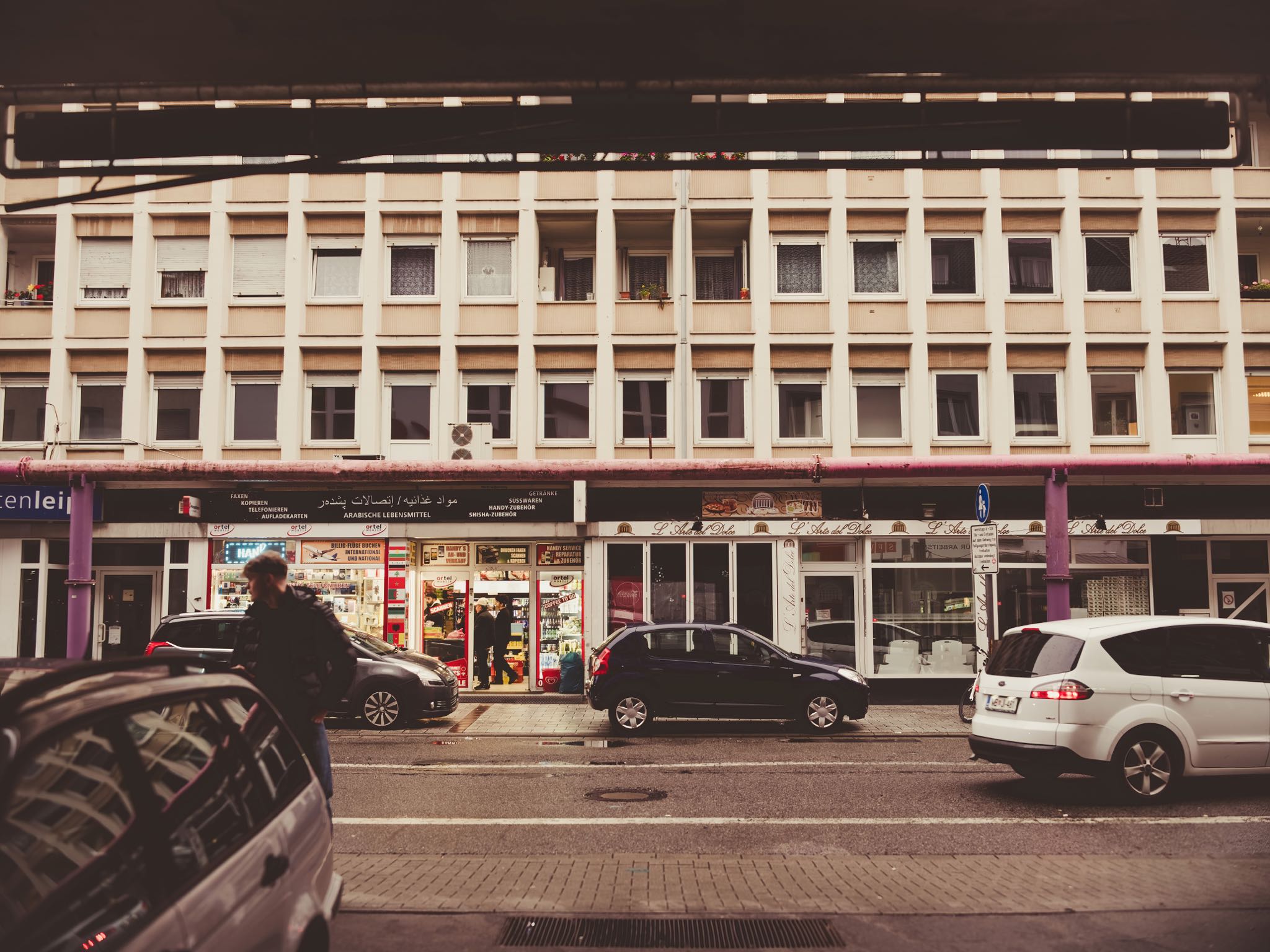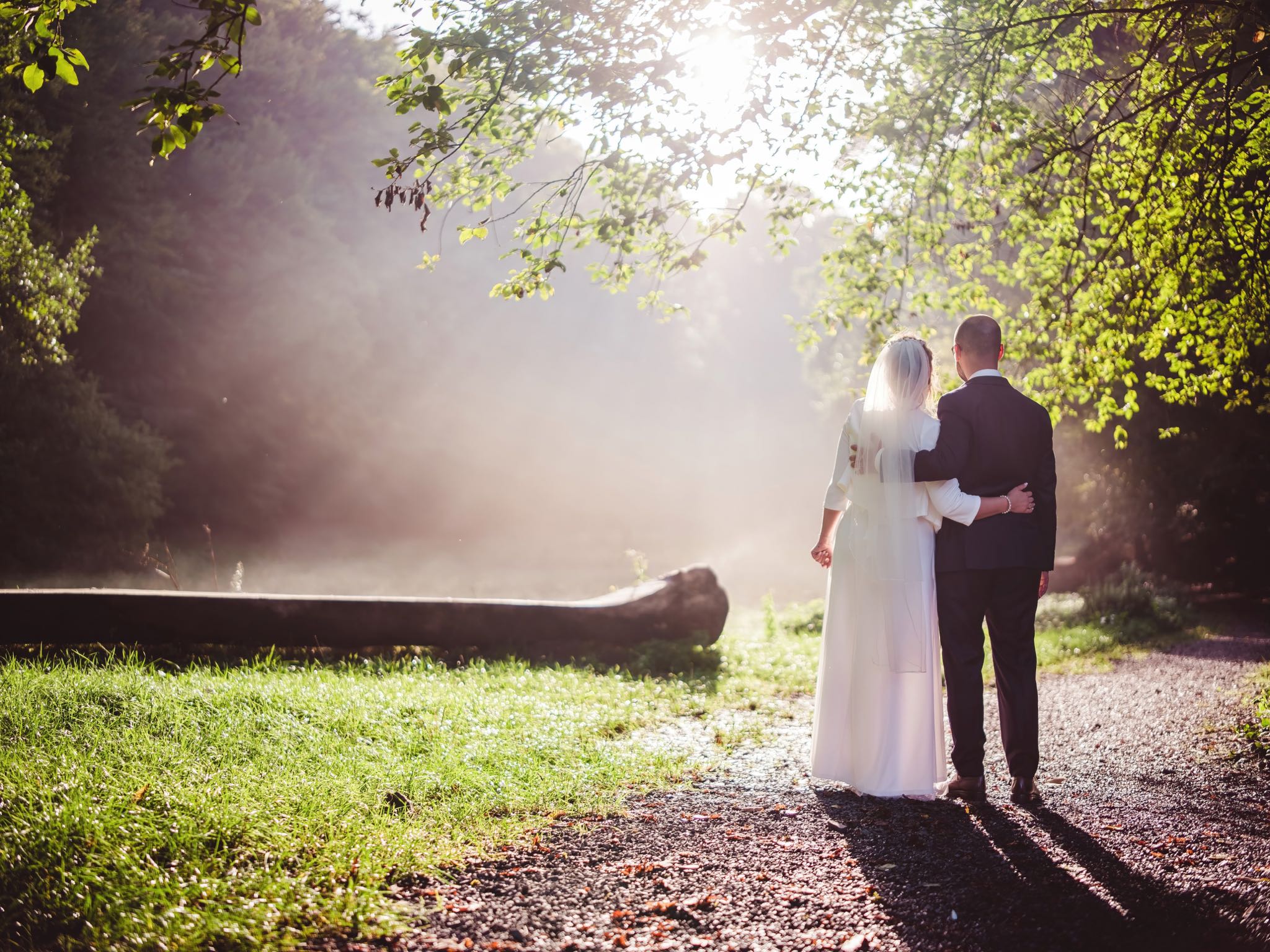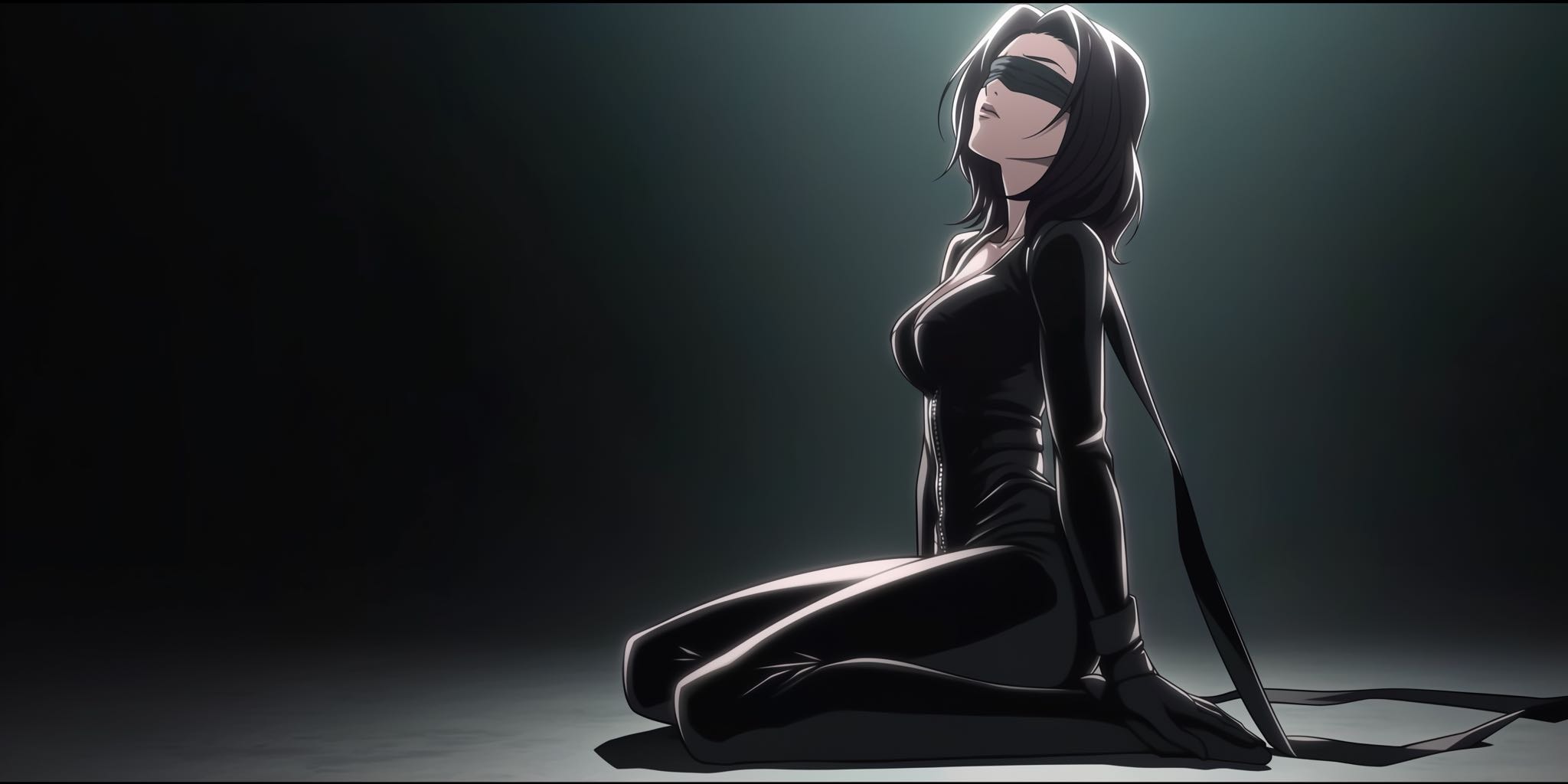D50 RAW to HDR tutorial.
NEW TUTORIAL FROM 2009 HERE!
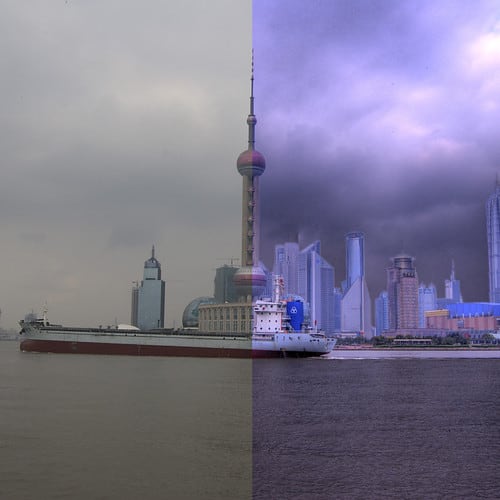
Here
it is, the promised Nikon D50 HDR tutorial or 'How To Make A HDR Image Out Of A Single RAW
file'. Do you want to make a image like the one above? Then read my tutorial and try for
yourself. Now I didn't teach everything myself, I learned a lot from 'stuck in customs', but
there are some things I do different. Let's get started.
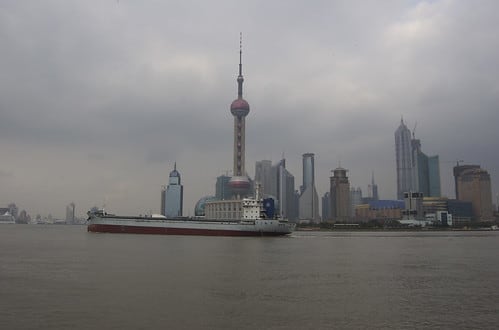
01:
Take a picture. Well, obviously you're going to need a image to start with. So set the D50
to RAW mode, go out and find something interesting. I haven chosen this picture for this
tutorial as it has colorful buildings as well as clouds. When it comes to clouds, it gets
really interesting. You can also download the RAW file I use for this tutorial here and go
step to step through the tutorial with my file: http://montras.io/wp-content/uploads/2007/shanghai.nef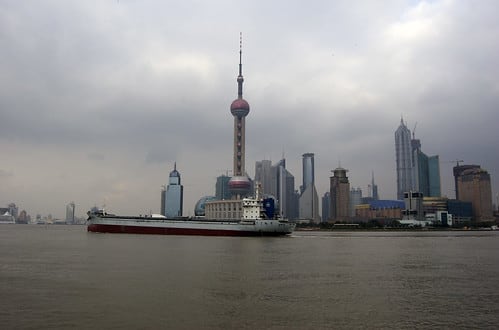
This
is what my chosen image would look like after dropping it in Photoshop and performing
Auto-Colorcorrection. Pretty ugly, right? Let's make it more beautiful with HDR.
02:
Copy the RAW file to your computer.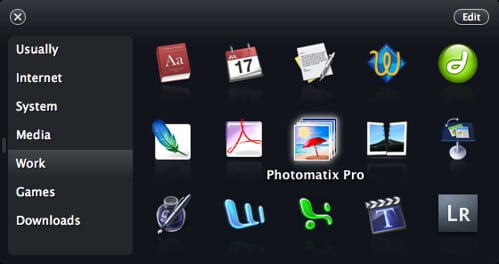
03:
Fire up Photomatix Pro.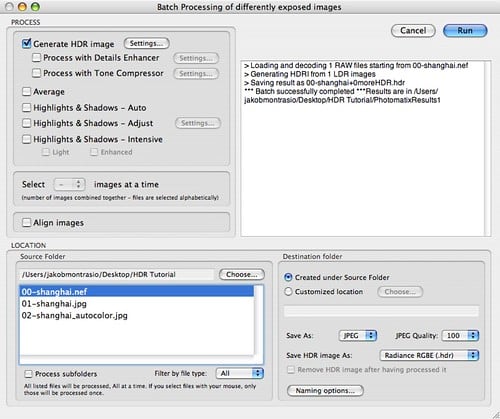
04:
Go to 'Automate' then 'Batch Processing'. Now locate your RAW file folder in the 'LOCATION'
area and select your RAW file (ending with '.nef' as for Nikon D50 files) and hit 'RUN'. It
will take a couple of seconds, then it will say '*** Batch successfully completed ***'. Hit
'Cancel', go to 'File' and hit 'Open...' - now browse to the folder where your RAW file was
lying around, there should be a folder called 'PhotomatixResults1' now. In there is one file
with the ending '.hdr', select it and hit 'Open'.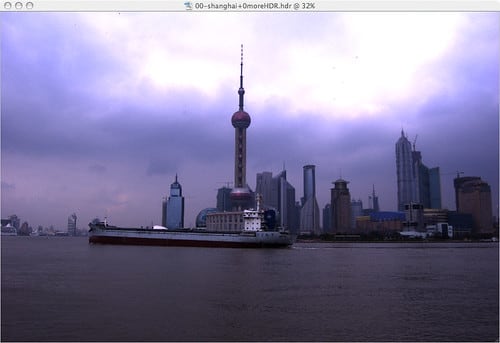
05:
That's what you see after a short loading. Photomatix has opened your HDR file, now let's
edit it. Click on 'HDR' then 'Tone Mapping'.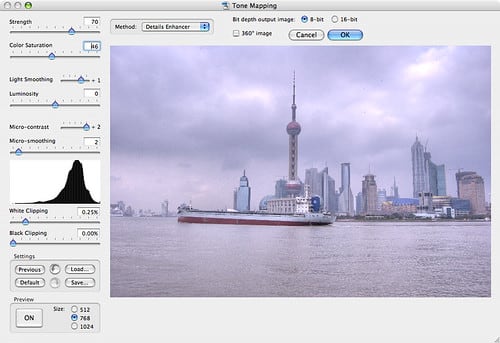
Now
we've reached the most important feature, the 'Tone Mapping'. Now come the HDR settings.
Play around with everything as you like now, and see the preview image change as you change
settings. The slower the computer, the longer it takes for the preview image to reload. Take
your time and try everything out to understand what does what. Don't change the 'Method',
though. Done? Okay, now try to set everything like this: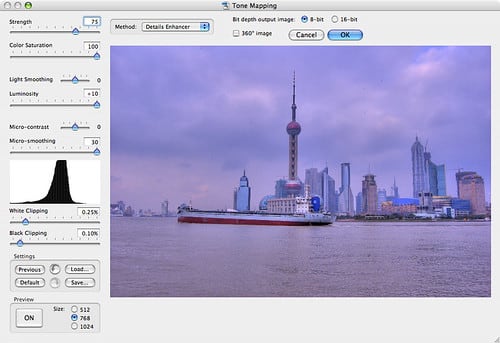
Now
we have few dark areas, the image has an overall bright tone. The shadows are 'taken'. Click
on 'OK. Then go to 'File' and save it as a tiff file. Don't close Photomatix, we want to
make the sky scarier now. You have this file now as a tiff: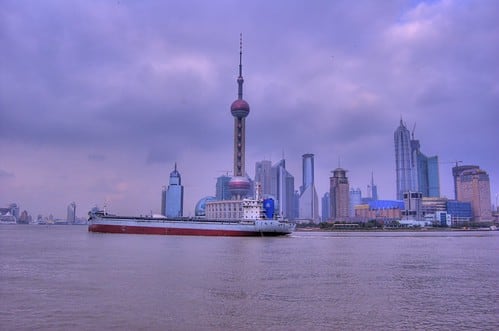
After
saving, go to'File' again, then 'Open recent' and open the '.hdr' file again. Now we save it
with different settings: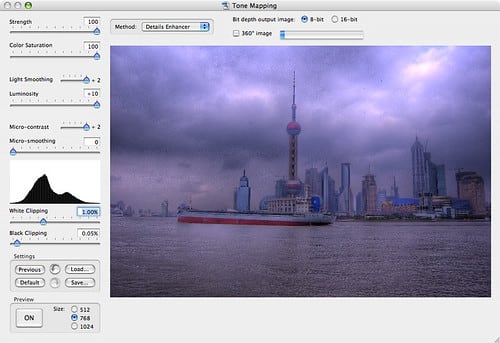
Save
again as a tiff, and look at it. The sky is much more interesting now, but the buildings are
much darker now, too: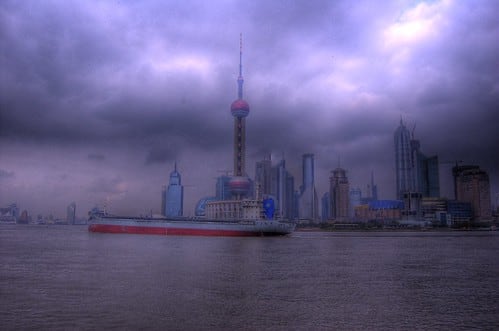
So
what do we do? We will open both files in Photoshop and keep the scary sky together with the
bright buildings. But to get the sky easily selected, we should make a bright image with
better contrast. Then we can select the sky much easier in Photoshop. So do this now, open
the '.hdr' a third time in Photomatix and Tone Map it with the 'Tone Compressor' method as
shown here: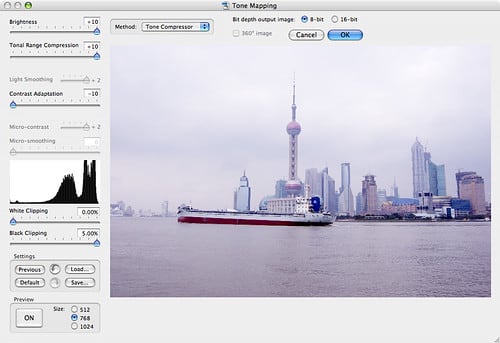
Now
you save it as the third and last file out from Photomatix. This is what you third tiff
should look like: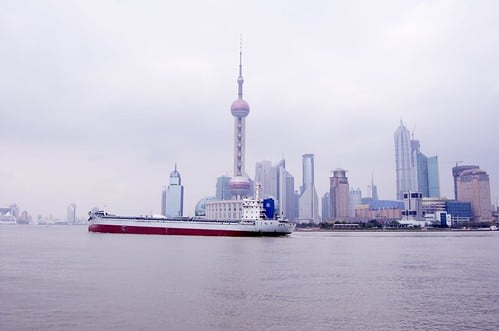
Open
that file in Photoshop and start selecting the sky with the 'Magic Wand' tool. Set it to 10
and click around. After a couple of seconds you should have easily selected the sky like
this: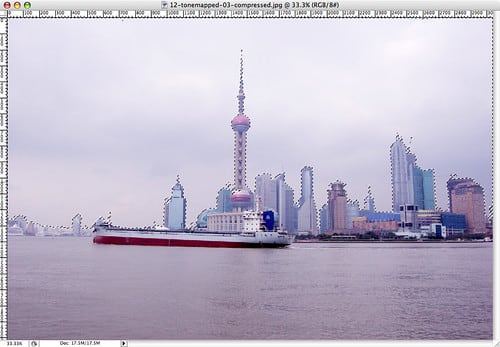
Let's
save that selection. Go to 'Select' and choose 'Save selection...', so we can load it on the
other images.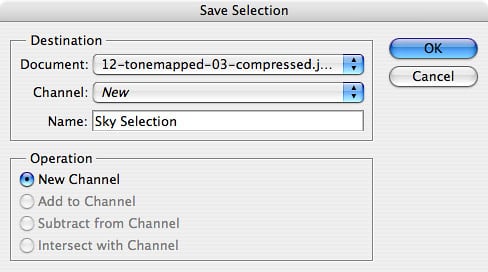
Now
open the first two HDR images you created. Drop the one tiff onto the other one and make
copies. Your layers should look something like this: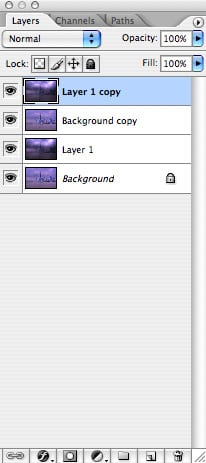
The
really bright, third HDR file has not to be here, leave it out. Now you have the scary sky
as the top layer, followed by the bright HDR image on the layer below, right? So select the
top layer with the scary sky, go to 'Select' and coose 'Load Selection...'. Now choose the
selection of the bright image, and invert it: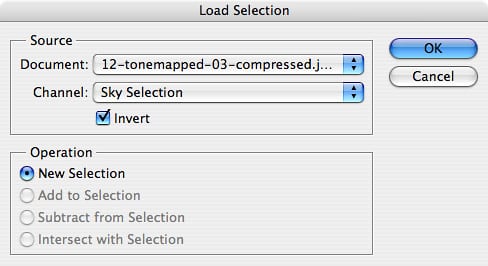
Now
you have easily loaded our previous selection onto the scary sky layer and inverted
it: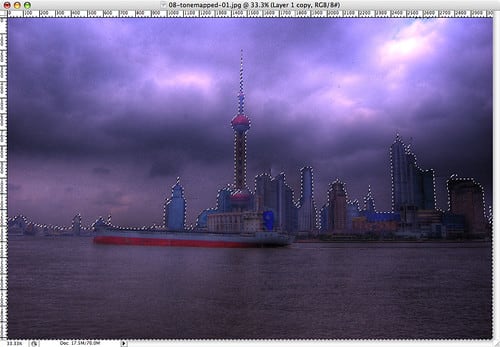
Hit
delete, and remove everything but the sky from the scary sky layer. Now it looks like
this: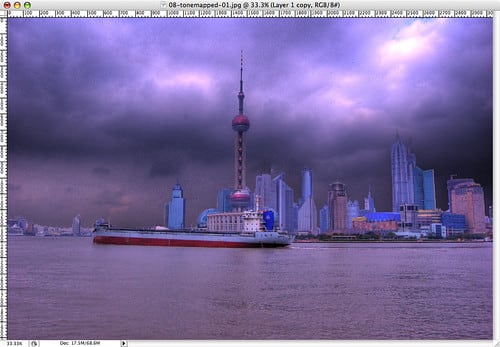
The
border between the buildings and the sky looks 'hard', so let's make it softer, and let's
take some of that grain out of the clouds. Go to 'Filter', 'Blur' and select 'Gaussian
Blur...'. You have to still have selected the top layer, right? The scary sky. Set the
Radius of the Gaussian blur to 2. Apply these settings. Now the image looks much smoother
and is finished: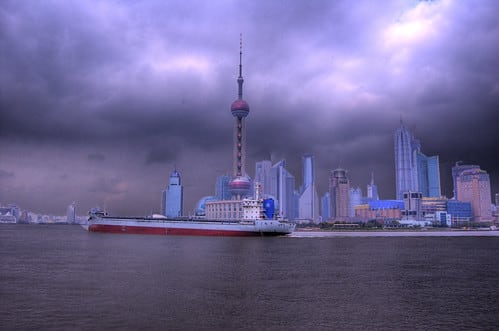
You
might want to add a border and a signature, so go to 'Image', and 'Canvas Size' - now add to
the width and height both 100 pixels: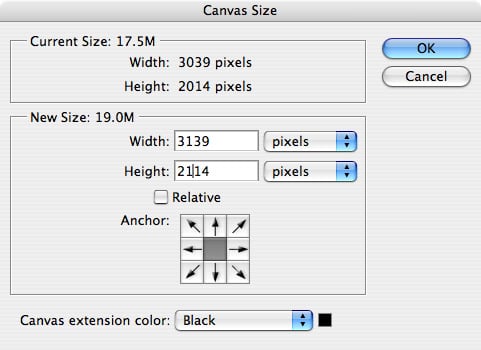
Now
you have a black border, drop some signature there, type your name there or whatever, and
save it. This is the final result.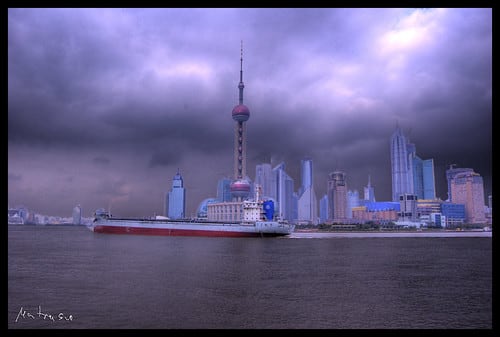
Okay,
let's review the steps: You open your RAW file in Photomatix, you save it with different HDR
settings, you open these in Photoshop and combine them there. Pretty simple and efficient.
Sure, the image here won't win any awards, but it's especially for this tutorial. Like with
almost everything in life: Practice, practice, practice! That's the only way to become
better and better. My HDR images are still horrible, as I have very limited time to work on
them, but anyway, I hope this tutorial helps people who want to start making HDR at all.
Here are some other HDR images I created from a single RAW file.